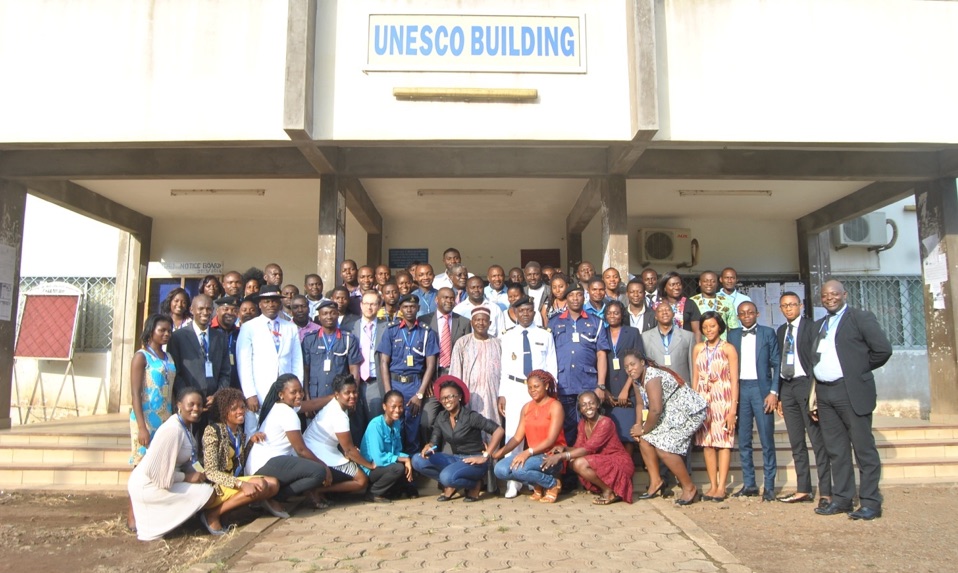University of Buea hosts five-day maritime security course

From 18 to 22 April 2016, I took part in an international maritime security course at the University of Buea in Cameroon. The course brought together more than 50 participants, including academics and practitioners from West and Central Africa. I had the opportunity to give several presentations and, more importantly, gain interesting insights from the participants.
The course was hosted by the University of Buea in collaboration with three Cameroonian NGOs: the Strategic Centre for Peace and Leadership, the Foundation for Peace and Solidarity and Campus for Peace and Dialogue International. It was the first maritime security seminar at the university. The broad structure of participants showed that it is a very interesting field of study.
Participants included lecturers, researchers from civil society organisations and postgraduate students from different universities. Members of various security agencies also took part in the course. Delegations from the Nigerian Security and Civil Defence Corps and the Cameroonian gendarmerie, among others, provided important inputs.
Different maritime challenges
The five-day course included a field trip to Limbe, the centre of Cameroon’s oil industry. Moreover, presentations from experts in different areas provided a comprehensive view of challenges in the region’s maritime domain (including territorial waters and the exclusive economic zone). Topics included security for the offshore oil and gas industry, problems caused by illegal, unreported and unregulated (IUU) fishing as well as transnational organised crime with a maritime focus.
During the closing ceremony, all participants agreed that the course was a very good initiative and should be repeated. The main organisers, Albert Samah from the Strategic Centre for Peace and Leadership and Roland Ndille from the University of Buea, hope to gain support from other institutions. The success of this first maritime security course in Buea should provide a solid foundation. Such initiatives certainly deserve a lot of attention in the context of the Yaoundé framework that is supposed to strengthen regional cooperation and improve relationships between academic institutions and security agencies.

